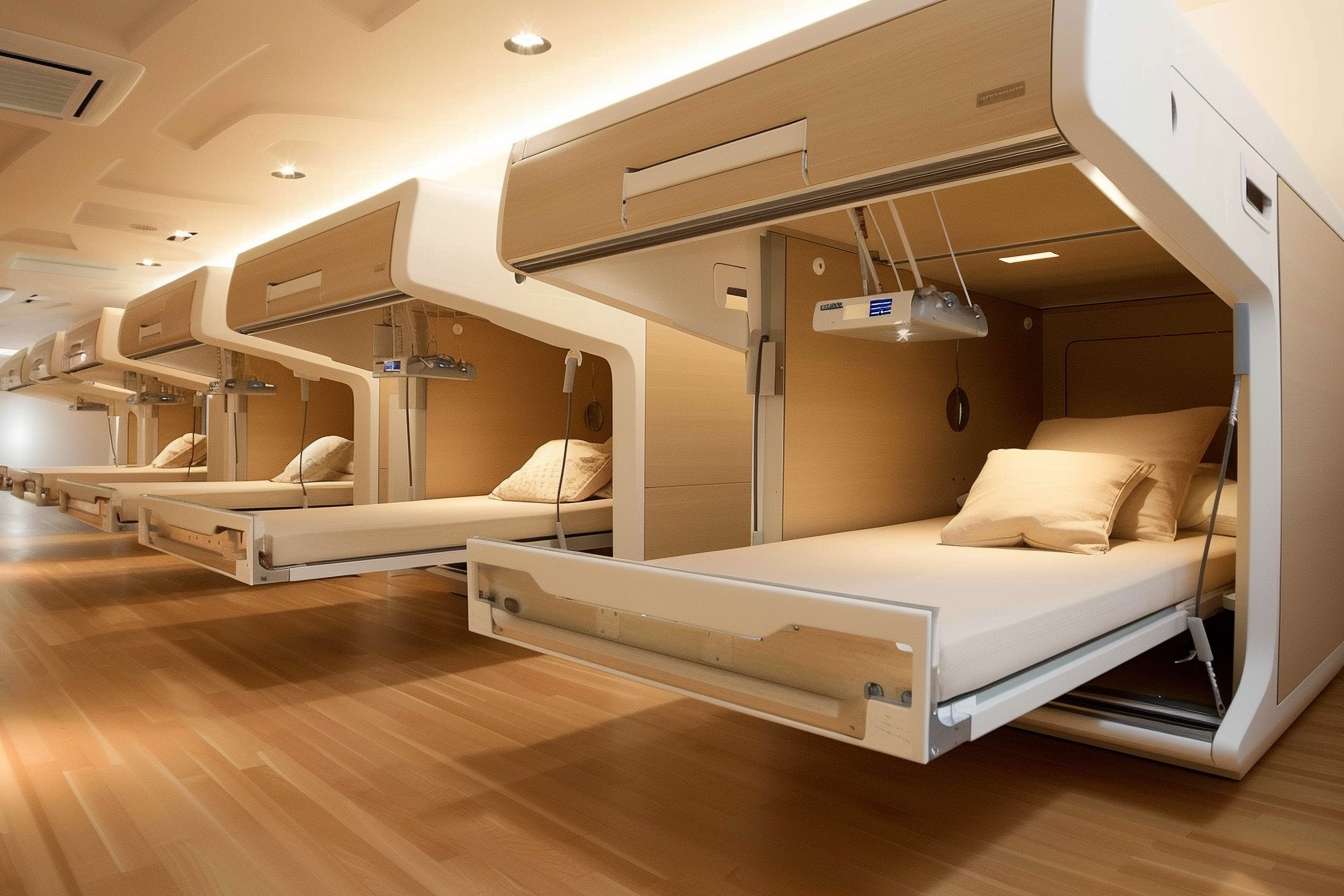Navigating the World of Capsule Hotels: A Traveler's Guide to Compact Comfort
Capsule hotels, once a quirky Japanese innovation, have evolved into a global phenomenon reshaping budget travel. These micro-accommodations offer a unique blend of affordability, efficiency, and futuristic design, appealing to adventurous travelers seeking novel experiences. From Tokyo to London, capsule hotels are redefining urban hospitality and challenging traditional notions of hotel stays.

Evolution and Global Expansion
What began as a uniquely Japanese solution has since spread worldwide, adapting to diverse cultural contexts and traveler needs. Modern capsule hotels have expanded beyond basic sleeping quarters, incorporating cutting-edge technology, stylish designs, and amenities that rival traditional hotels. From New York to Singapore, capsule hotels now cater to budget-conscious millennials, solo travelers, and even luxury seekers looking for a distinctive experience.
The Capsule Hotel Experience
Stepping into a capsule hotel is like entering a sci-fi movie set. Rows of compact pods line the walls, each offering a private sanctuary within a shared space. Despite their small size, many capsules are equipped with surprising amenities: built-in TVs, USB ports, adjustable lighting, and climate control. Some even feature windows or transparent walls for those who prefer a less enclosed feel.
Beyond the Pod: Shared Spaces and Amenities
Capsule hotels have evolved to offer more than just a place to sleep. Many now boast impressive communal areas, including co-working spaces, lounges, and even rooftop bars. These shared facilities not only maximize space efficiency but also foster a sense of community among guests. Some capsule hotels have taken the concept further, offering themed experiences or integrating local art and culture into their design.
The Psychology of Small Spaces
The appeal of capsule hotels goes beyond practicality. For many travelers, the experience taps into a primal desire for cozy, enclosed spaces – a modern interpretation of the cave. Psychologists suggest that these micro-environments can induce feelings of security and comfort, provided they’re well-designed. The challenge for capsule hotel designers lies in balancing privacy with openness to avoid claustrophobia.
Sustainability and Efficiency in Travel
Capsule hotels represent a sustainable approach to urban accommodation. By maximizing space efficiency, they reduce the overall environmental footprint per guest. Many capsule hotels also incorporate eco-friendly materials and energy-saving technologies, appealing to environmentally conscious travelers. This alignment with sustainability trends positions capsule hotels as a forward-thinking option in the hospitality industry.
The Future of Capsule Hotels
As urban populations grow and travel habits evolve, capsule hotels are poised for further innovation. We’re already seeing the emergence of capsule hotels in airports, train stations, and even floating on water. The integration of smart technology, such as AI-controlled environments and virtual reality entertainment within pods, hints at the future direction of these micro-accommodations.
Insider Tips for Capsule Hotel Stays
• Book upper-level capsules for more privacy and less foot traffic
• Bring earplugs to counter potential noise from neighboring pods
• Use provided lockers for valuables and bulky items
• Familiarize yourself with shared bathroom schedules to avoid peak times
• Take advantage of communal spaces to meet fellow travelers
• Check for gender-specific floors or sections for added comfort
Capsule hotels represent a fascinating intersection of architecture, technology, and changing travel preferences. As they continue to evolve and spread globally, these compact accommodations offer more than just a place to sleep – they provide a unique lens through which to experience destinations. Whether you’re a budget traveler, a curious adventurer, or simply seeking a novel way to explore a city, capsule hotels offer a glimpse into the future of urban hospitality.






